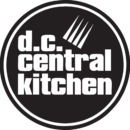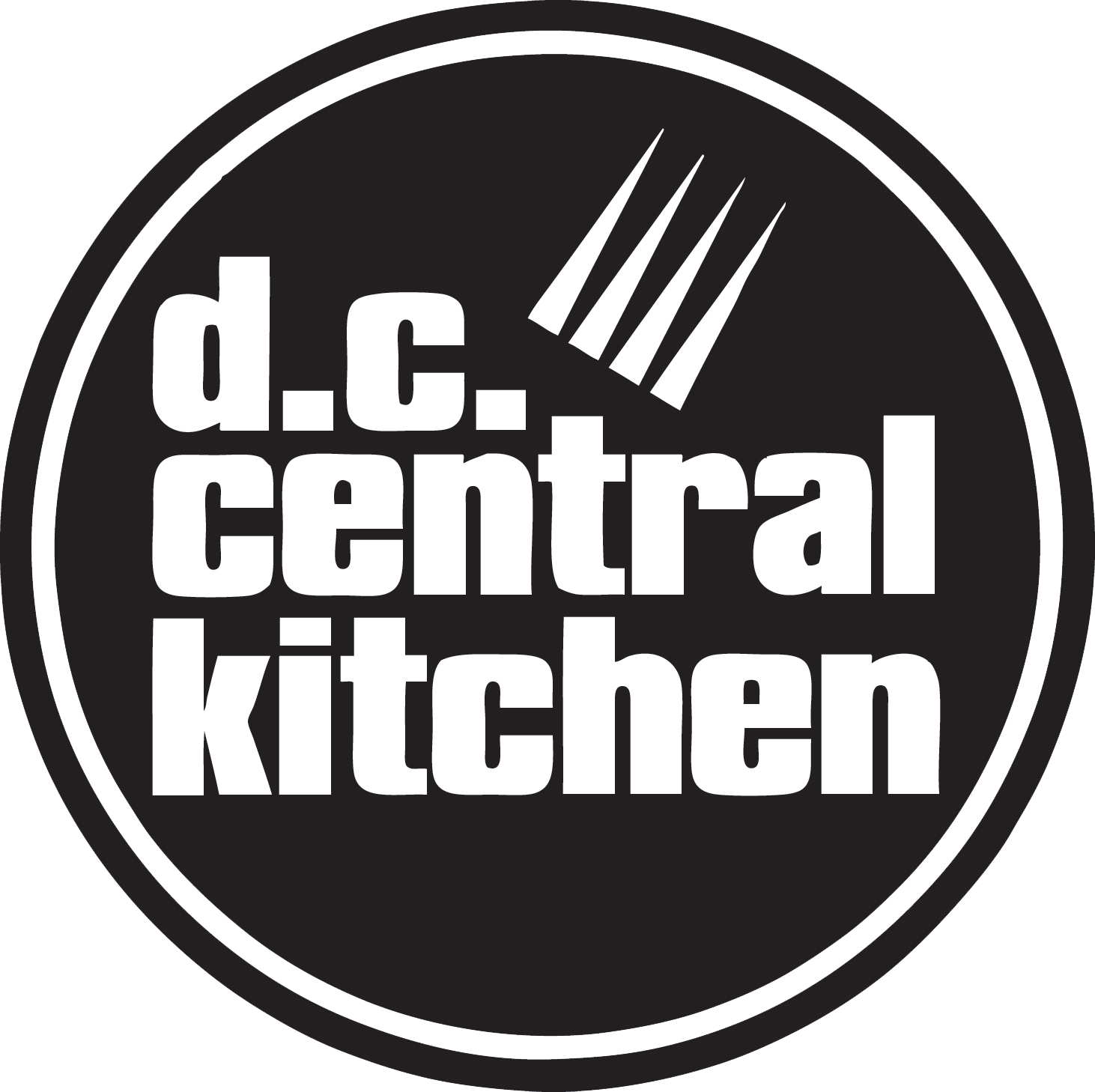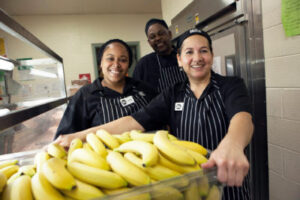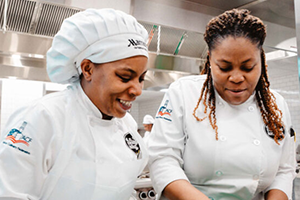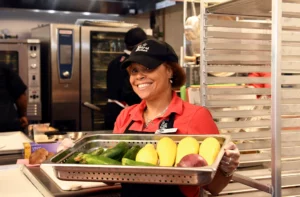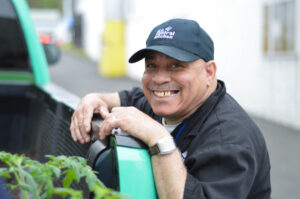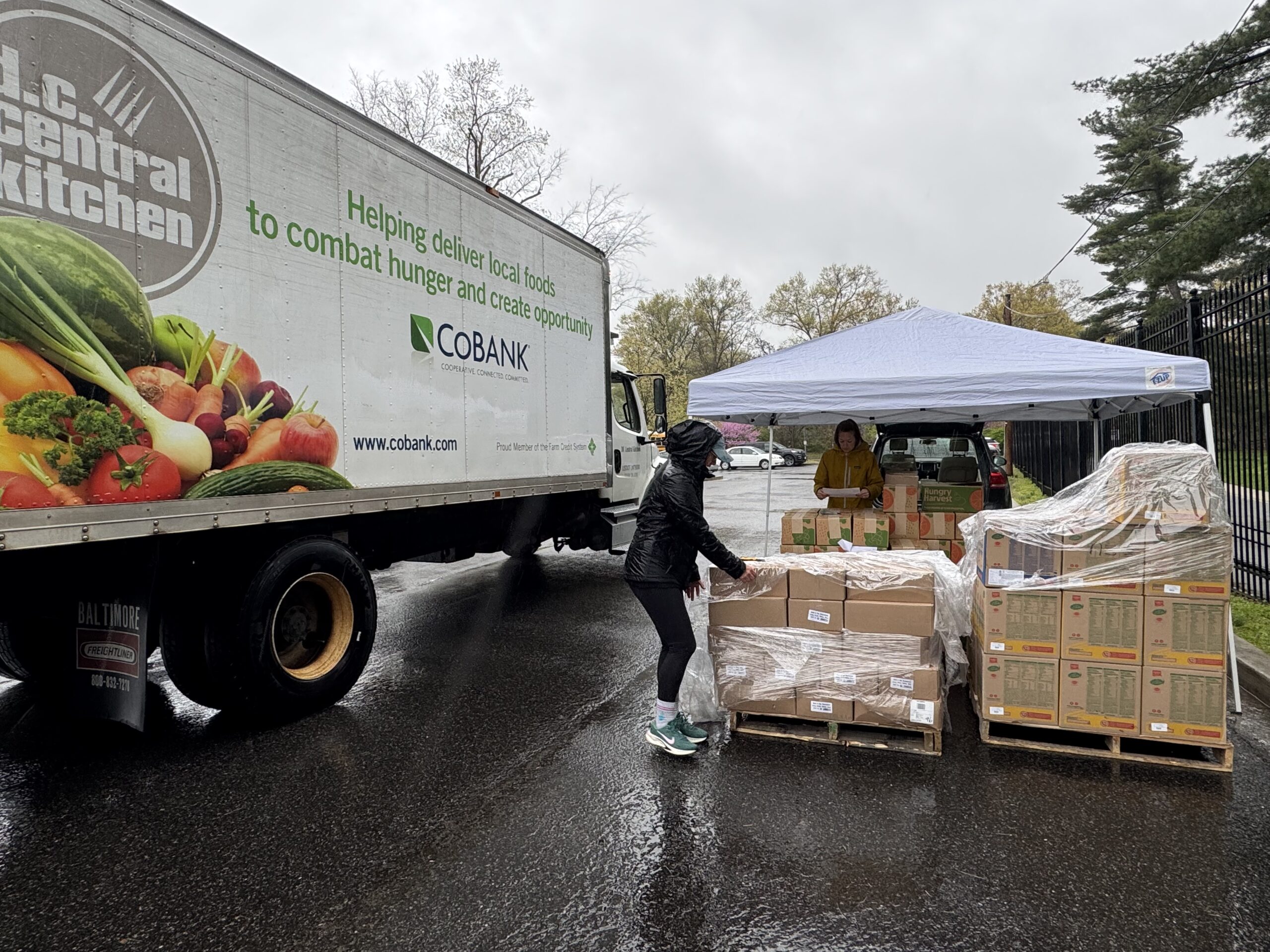DC Food Project didn’t start because of the pandemic. But that sudden shock to so many children’s lives drove them to evolve and expand their game-changing efforts to feed kids during what they call “the gap.”
DC Food Project launched in 2018 when a group of four motivated moms met up to address food shortages in one student’s home. A teacher was purchasing food for a child at their kids’ elementary school so the student would have something to eat when he wasn’t at school. “We spoke with our school principal. We spoke with our school staff and found out that there were a lot of great services like free and reduced lunch, but there was nothing to fill the gap between breakfast and lunch or when a student goes home from school. We started DC Food Project to fill that gap,” says DCFP co-founder Alysa MacClellan.
The group initially started with 20 Share Tables, where students could place unopened, uneaten, or sealed portions of school-provided breakfast or lunch into a basket, providing other students an opportunity to take additional helpings of food that would otherwise be thrown away. Along with the Share Tables, they kicked off a weekend bag program supporting 17 students who needed food while school was closed. Then came 2020.
DC Central Kitchen became involved with the organization at the height of COVID-19. “When the pandemic hit, we knew that schools were going to be in dire need because those kids who relied on school meals would not have that opportunity to have meals consistently – overnight,” says MacClellan. “We reached out to our schools that we had partnerships with through our Share Table program to see what we could do to help. We heard from seven of them immediately saying that they were going to be in dire need, knowing a majority of their families relied on that free meal program. We started collecting food from neighbors and delivering it to schools so they could hand it out to their communities. From there, we worked with restaurant distributors who were looking to donate excess food as everything shut down. Then we connected with DC Central Kitchen, who stepped in and played a big part of being that one large food distributor for us, eventually helping deliver bulk meals for us to be able to hand out to our partner schools and each of their communities.”
Our staff remembers that connection well. “During the early days of COVID, every emergency food provider would spend their waking hours navigating a new world of massive need and then jump on a daily all-hands conference call of nonprofits, city agencies, and mutual aid volunteers at 4:30pm,” recalls Chief Development Officer Alexander Moore. “We’d spend an hour reviewing who needed food, who had extra food, who ran short when lines got too long. And every day, there were these incredible volunteer moms mapping the city’s food resources and ramping up these purposeful distributions of food. I had to learn more, and together we mapped out a way to merge DCCK’s supply chain and networks with their efficient model and school-by-school connections.”
That one community bag distribution site soon grew to two dozen, and when schools re-opened, DCFP pioneered a school-based food pantry model that has become an enduring part of their work. These pantries are operated by school staff who know the needs of their kids and families, and DCFP ensures the pantries remain fully stocked throughout the year. DCCK provides many of the cabinets used to store these pantry items and we’ve helped share funding to fuel these vital food access points year-round.
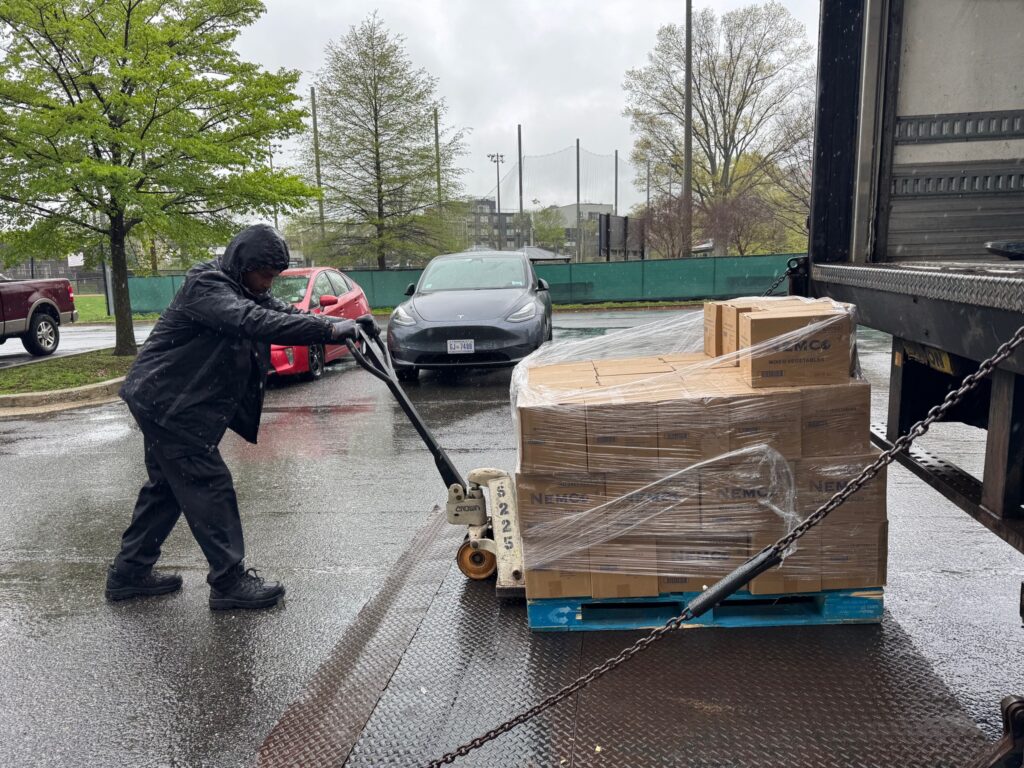
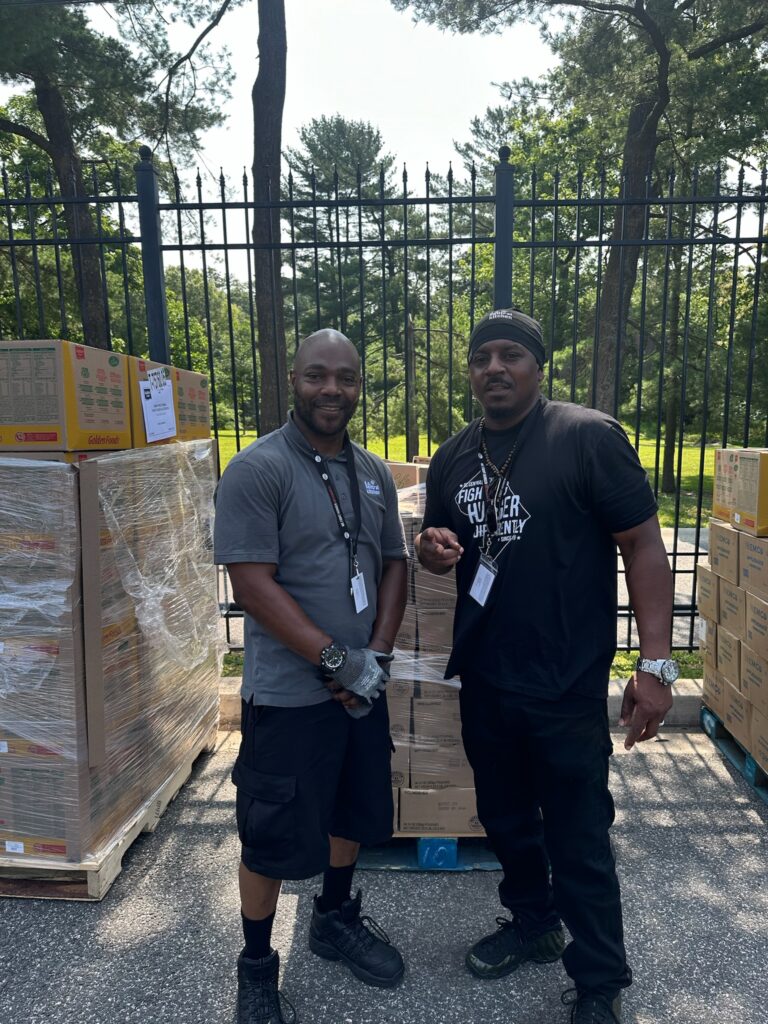
In our years working together, we’ve seen DCFP provide over 3.5 million meals, conduct quarterly bulk food distribution at dozens of school sites throughout DC backed by DCCK’s supply chain, and set up over 80 Share Tables and Pantry Programs throughout all 8 wards in DC and Northern Viginia schools. Together, these efforts are helping thousands of children and families with basic needs.
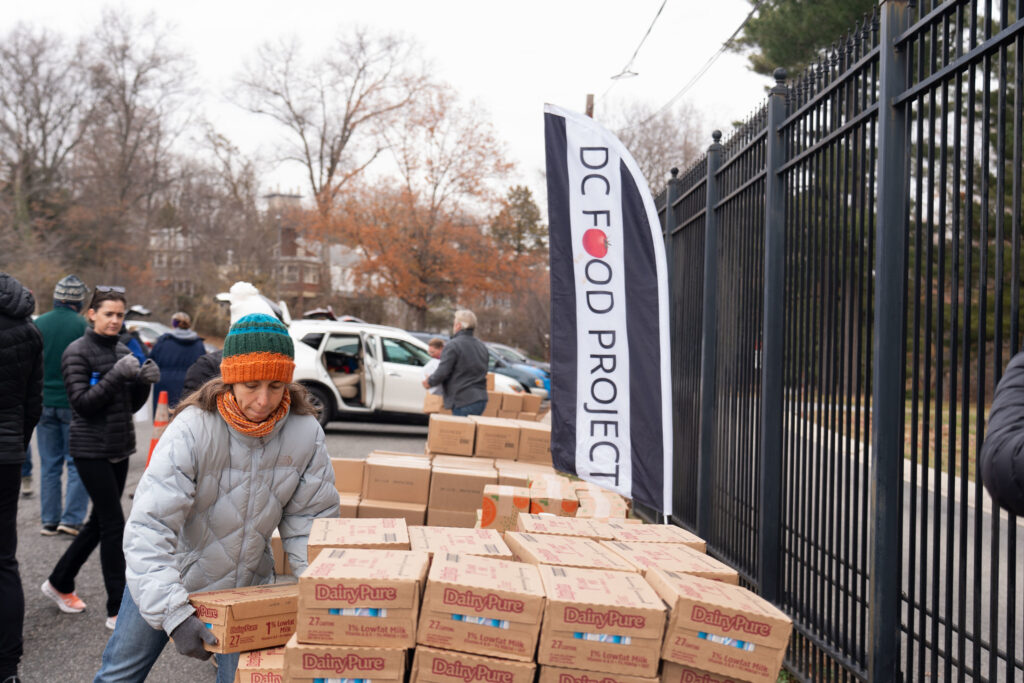
The connection and collaboration of DCFP and DCCK exemplifies the power of doing more together. What began as a reaction to help a few families in a few schools evolved into a pandemic-based partnership that’s currently on track to provide its 5 millionth meal by the end of the 2025-26 school year. The silver lining of the pandemic has been building relations like this, taking something organically inspired to build sustainable, empowering partnerships.
Though the pandemic is over, the demand for the innovative work of DC Food Project has not lessened. Far from it. “We do find that the need is still there,” says MacClellan. “The need is going to start getting a lot bigger, and we might be even going into more pandemic-[style] times.” DCCK knows DC Food Project steps up when times are their toughest. We’re pleased to support them throughout the year—and you can too. All donations they receive goes directly to their work in schools.
